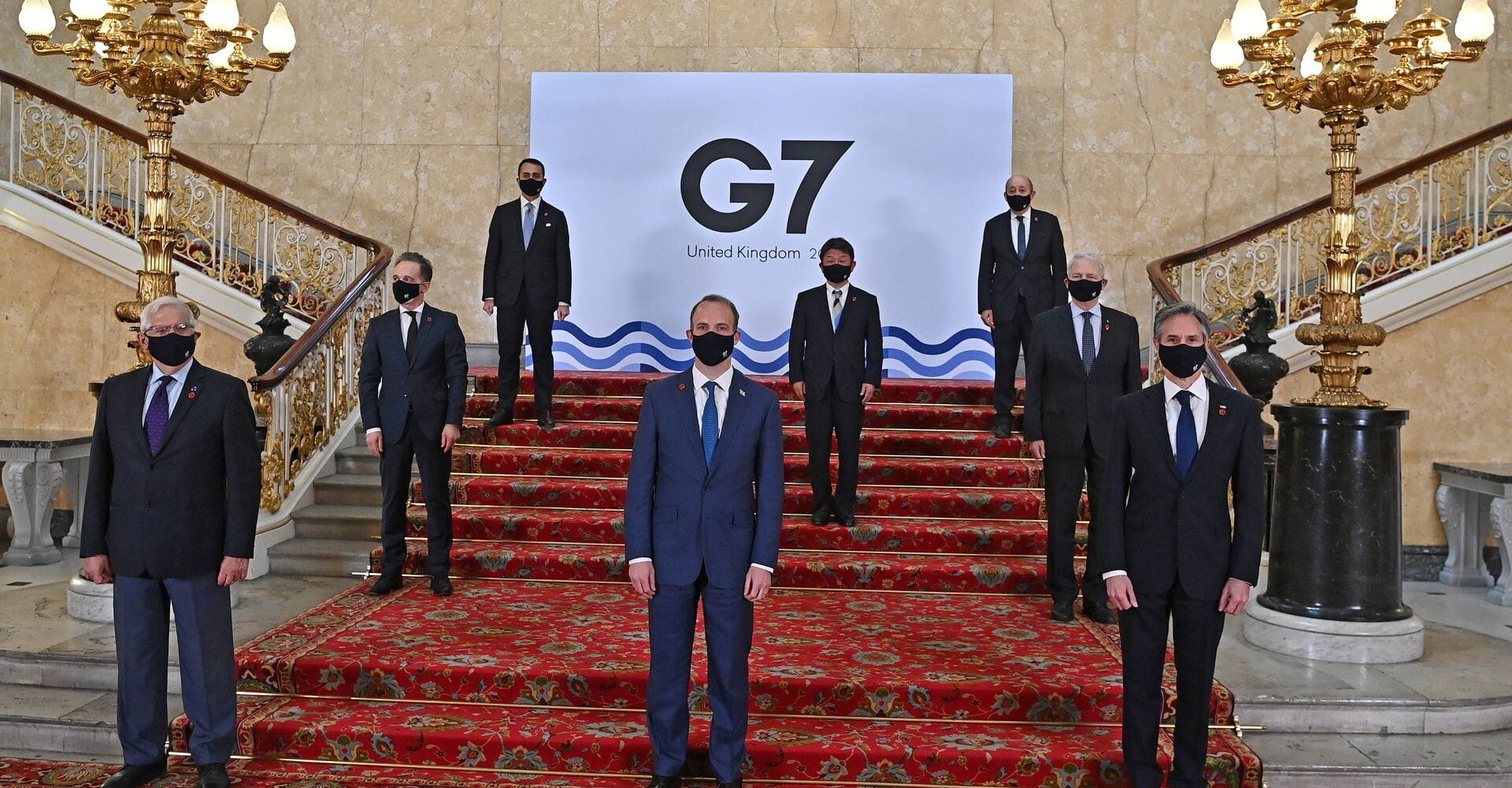The leaders of the Group of Seven rich democracies (G7) of the world met in London last month, to enhance their mutual cooperation to counter challenges posed by China and Russia.
Leaders of the world’s largest economies agreed to take concrete steps and unveiled a global infrastructure plan for the developing world to compete with the Chinese Belt and Road initiatives.
G7 leaders discuss the matter of common interests and try to find ways without containing Beijing or escalating tension with the Kremlin.
Follow us on Google News to get the latest defense news and analysis
American President, Joe Biden’s Secretary of State, Antony Blinken said, “It is not our purpose to try to contain China or to hold China down.” He added the West would defend “the international rules-based order” from subversive attempts by any country, including China. According to Reuters.
The G7 was founded back in 1975, as a group of the most advanced economies of the world to discuss crises such as the OPEC oil embargo. The G7 meeting last month was primarily focused on the biggest threats that they perceive: China, Russia, and the pandemic.
G7 Foreign Ministers in their 12,400 words communique discussed that Russia was trying to undermine democracies and threatening Ukraine and the imprisonment of Kremlin critic Alexei Navalny.
China, on the other hand, shows great economic and military rise over the past 40 years. This spectacular economic development of China is seen by diplomats and investors as the most significant geopolitical event of recent times. In the G7 meeting, world leaders discussed China’s human rights violations and its economic influence on other countries. Al Jazeera reported.
The G7 combined contain $40 trillion in economic clout and three of the world’s nuclear powers.
Russia was included in what became the G8 in 1997 but was suspended in 2014 after annexing Crimea. Also, China is the world’s second-largest economy but has never been a part of the G7.
The G7 leaders agreed to bring a global infrastructure plan for developing countries to counter the Chinese ‘One Belt One Road (OBOR)’ project.
China has started the ‘China Pakistan Economic Corridor (CPEC)’ project in Pakistan back in 2015. The project brings about the $46 billion direct and indirect investment in Pakistan to develop its Gwadar deep seaport and the rails, roads, oil and gas pipelines that connect Gwadar to the Chinese city of Kashgar. It is a major flagship project of the ‘One Belt One Road (OBOR)’ initiative. The project after completion will connect China with South Asia, Central Asia, and the Middle East.
‘One Belt One Road (OBOR)’ includes more than 60 countries globally and will connect two of the world’s most dynamic economic zones, European and Asia-Pacific economic zones.
British Foreign Secretary Dominic Raab said, “The UK’s presidency of the G7 is an opportunity to bring together open democratic societies and demonstrate unity at a time when it is much needed to tackle shared challenges and rising threats.”
Collectively, the West is much bigger than China and Russia in terms of economy and military. But struggle to bring up an effective response.
“We will work collectively to foster global economic resilience in the face of arbitrary, coercive economic policies.” G7 ministers said about China.
G7 also supports Taiwan it’s participation in WHO forums and showed concerns over China on any unilateral actions that could escalate tension in Taiwan Strait.
Chinese Foreign Minister strongly condemned the joint statement by G7 foreign ministers about Taiwan by saying it was gross interference in China’s internal affairs.
Analysis:
The G7 leaders discussed the world’s most pressing geopolitical issues faced by the world rich economies, in their final communique.
The G7 foreign ministers also discussed the ways to counter Chinese economic development and Russian aggressive military posture.
The global infrastructure plan by G7 without any details to counter the Chinese ‘One Belt One Road (OBOR)’ initiative is still in talks or in papers. Let’s see how they come up with strong economic reforms for developing countries to counter the world’s second-largest economy’s great development projects.


